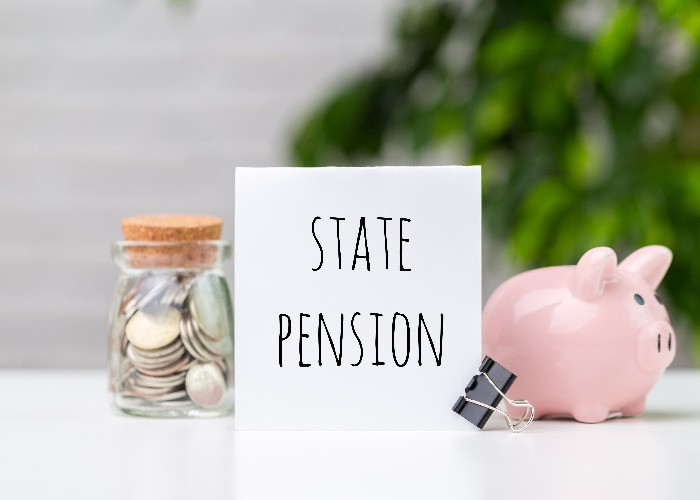Pensioners in receipt of the full state pension will see their payments increase by £460 in April, according to official wage figures.
The Officer for National Statistics (ONS) reported a total pay increase of 4% in the months up to July. This is the lowest increase for nearly four years, but it means pensioners can expect to see their full, flat-rate state pension go up to £11,962.60 a year from next April – a rise of £460.
The news comes as the government faces a backlash over its decision to cut the winter fuel payment for most pensioners, as announced by the Chancellor, Rachel Reeves. More than nine million pensioners will no longer be eligible for up to £300 this winter after the Chancellor announced the introduction of means-testing for the payments.
Under the “triple lock” guarantee, the state pension increases every April in line with whichever is the highest of average total earnings growth in the year from May to July of the previous year, CPI inflation in September of the previous year, or 2.5%. As inflation is not expected to be higher than wage growth, the wages figure is likely to be used for the calculation. But the figures are subject to possible revisions in next month’s data and the Government will confirm the planned increase in the autumn.
Who Will Benefit?
While the news of the £460 increase is positive, not all pensioners will see the same rise. For example, some pension components, including SERPS and the State Second Pension, will rise by a lower amount, linked to inflation. Many pensioners who were part of ‘contracted out’ occupational pension schemes will also receive smaller increases.
Will the Rise Counteract the Winter Fuel Payment Cuts?
Helen Morrissey, head of retirement analysis at Hargreaves Lansdown, cautioned the rise in the state pension will only partially offset the pain for the millions of pensioners who are being stripped of their winter fuel allowance. She said: “There’s every chance it’s not enough to placate those pensioners still reeling from the loss of the winter fuel payments, especially given how close this is edging to busting the personal allowance.”
She warned the new annual pension is moving closer to the £12,570 personal tax allowance. “Given that the freeze to this threshold is expected to remain in place until 2028, it raises the spectre of the full state pension alone taking pensioners over it and into the realms of paying income tax during the next few years,” she said.
The Triple Lock: A Sustainable Solution?
The triple lock system has been subject to debate for years, with concerns raised about its sustainability. Some argue that it is not sustainable in the long-term, particularly given the rising cost of living and the aging population. The government has been considering various options, including scrapping the triple lock or making changes to its application, but no concrete decisions have been made so far.
The increase in total pay – which includes bonuses – measured by the ONS showed a marked slowdown from the previous month. The ONS said this was due to one-off bonuses paid to NHS and civil service workers in June and July 2023 not being replicated this year. Growth in regular pay, excluding bonuses, also slowed to 5.1%, although it is still rising faster than inflation.
A Deeper Dive into the Triple Lock
The triple lock is a policy that guarantees the state pension increases every April in line with whichever is the highest of average total earnings growth in the year from May to July of the previous year, CPI inflation in September of the previous year, or 2.5%. The policy was introduced in 2011 by the Conservative-Liberal Democrat coalition government.
The triple lock has been praised for protecting pensioners from rising inflation and ensuring that their incomes keep pace with the cost of living. However, it has also been criticized for being unsustainable in the long term. Some argue that it is too expensive and that it is unfair to younger generations, who will have to pay more in taxes to fund the pensions of older generations. Others argue that the triple lock is essential to ensure that pensioners can live a comfortable retirement. They argue that the state pension is a vital safety net for many people, and that it would be unfair to reduce its value.
The debate over the triple lock is likely to continue in the coming years, as the government weighs its options for the future of the state pension. It remains to be seen whether the government will maintain the current system or make changes to it. The decision will have significant implications for pensioners and for the economy as a whole.
Will Pensioners Feel Better Off?
The £460 increase in the state pension is a welcome boost for pensioners, but it is unlikely to offset the impact of the cuts to the winter fuel payment. Many pensioners who were relying on the winter fuel payment will find themselves struggling to make ends meet, especially as the cost of living continues to rise. It is also worth noting that the rise will be taxed, meaning that many pensioners will see a smaller increase in their net income. As a result, many pensioners are likely to feel worse off in real terms.
The government’s decision to means-test the winter fuel payment has been met with criticism from many groups, including charities, think tanks, and pensioners’ organizations. They argue that the decision is unfair and will disproportionately affect the poorest pensioners. They also argue that the decision will make it harder for pensioners to stay warm and healthy during the winter months.
A Closer Look at Pension Credit
The government has argued that the cuts to the winter fuel payment are necessary to save money and that those who need it most will still receive it. They have also pointed out that pensioners can claim pension credit if they are on low incomes. Pension credit is a top-up benefit that can be worth thousands of pounds a year and can also unlock access to other benefits, such as help with council tax and NHS costs. However, many eligible pensioners are not claiming pension credit, leaving them missing out on vital financial support.
The Future of Pension Provision
The government’s decision to means-test the winter fuel payment has highlighted the need for a more holistic approach to pension provision. Pensioners are already struggling with the cost of living, and the cuts to the winter fuel payment are only going to make things worse. The government needs to ensure that pensioners have enough income to live comfortably in retirement, and this will require a comprehensive review of the state pension system and other forms of support. The government has committed to a review of the state pension system, but the details of this review are yet to be announced. It is hoped that the review will lead to a fairer and more sustainable system that provides adequate support for pensioners.
A Final Thought: Balancing the Books
The government is facing a difficult task in balancing the books, but it is important to remember that pensioners should not bear the brunt of these cuts. The government needs to find a way to provide adequate support for pensioners without cutting essential benefits. This will require difficult choices, but it is essential to ensure that pensioners are not left behind in the government’s drive to reduce the deficit.


















